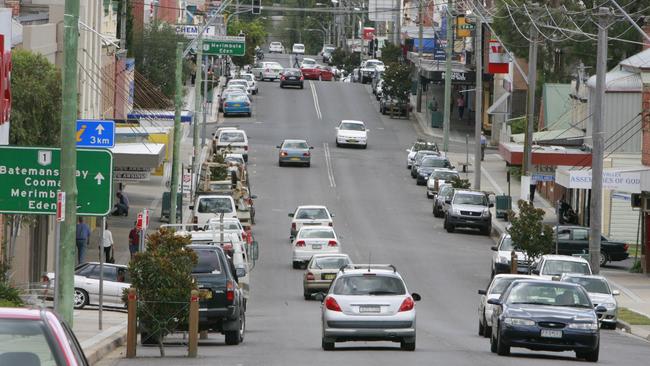Bega Council targets Airbnbs as housing crisis continues
Distressed tenants have stopped reporting potentially dangerous housing problems such as mould out of fear of being evicted, housing advocates say. The warning comes as Bega Valley Shire Council unveils its plan to tackle the housing crisis.
The South Coast News
Don't miss out on the headlines from The South Coast News. Followed categories will be added to My News.
South coast renters are living in fear of being evicted from their homes amid an unprecedented housing crisis, the NSW Tenants Union has warned.
The message comes as Bega Valley Shire Council takes aim at the Airbnb industry and short term leasers in its new housing affordability strategy.
NSW Tenants Union chief executive officer Leo Patterson Ross said the region’s tenants were afraid to report potentially dangerous household issues such as mould and poor ventilation out of fear that landlords might terminate their lease.
“People are very, very worried,” he said.
“What often happens for the person living in the property is that they just stop reporting any issues.
“They don‘t want to give kind of any trigger that might to the landlord deciding that they’re no longer worth keeping.
“That puts people in really awful positions because they might be dealing with unstable properties in disrepair that are actually unsafe to keep living in and that are clearly unlawful.”
Mr Patterson Ross said tenants fears had been exacerbated by a dire housing shortage that has forced many people to leave the community permanently once being evicted because of a lack of available accommodation and the Covid pandemic.
In the Bega Valley, the effects of the housing crisis have been felt across the community since the start of the pandemic.

In January, Eden was named-and-shamed in a list of towns where rental properties were the hardest to secure, while Bega itself had a rental availability of just 0.1 per cent in December, well below the accepted healthy average of at least 4 per cent.
To address the crisis, the newly-elected Bega Valley Shire Council unveiled its draft plan for housing affordability, which is under public consultation until Sunday.
The council’s of community, environment and planning director Dr Alice Howe said the plan took aim at the 17.5 per cent of properties unoccupied in the region by urging Airbnbs and short term leases to release properties into the rental market.
“The key issue is that we have a significantly higher amount of housing in the short term lending market than in regional NSW,” she said.
“Nineteen per cent of our housing stock is let through Airbnb, or is used for holiday accommodation for people who live somewhere else, compared to nine per cent in regional NSW.”
The council had introduced a 180-day cap on short term letting last year, but had recently overturned the measure in response to pressure from the short term letting market, Dr Howe said.
“It’s still more financially beneficial to let for six weeks over the summer period, then it would be to put that housing stock into the rental market in terms of the returns for the investor for the owners of those properties,” she said.
“That‘s a real challenge: the incentives that are in the market and at the federal government policy level that incentivises that kind of investment over more permanent rental accommodation.”

Dr Howe said there were 2500 new affordable dwellings that needed to be built over the next 15 years, with proposed planning controls to help encourage smaller dwellings that are more affordable.
While Dr Howe hopes the changes will help alleviate the crisis over the next two to five years, more needed to be done to tackle the crisis facing residents now and into the immediate future, and called on the state and federal governments to invest in dwindling social housing in the region.
“We’ve got an immediate crisis, which is why we’re really calling on the on people that do have that 19 per cent of housing stock that’s not available for people to see if they could, even for a year, make that available so that someone can live in it for a six or 12-month term.
“The other issue is that people might be able to rent something, but it‘s for three or six months, and that’s a big pressure on a family to have to be always looking for somewhere else to go and the cost associated with relocation, not just financially but in terms of stability of the household for kids.”

In the meantime, Mr Patterson Ross said south coast tenants were still being told they were being evicted so that landlords could charge a higher rent, or convert the property into a short-term lease.
Competition for what housing there is left is also highly competitive and draining on families.
“What is increasingly happening and distressing to people is that they‘re having to actually leave towns that they’ve lived in for years and going further and further away from their work, from their family and friends, their social circles,’’ he said.
“It becomes a real displacement of your whole life.”




